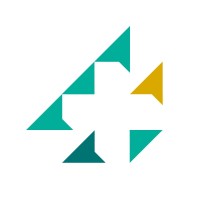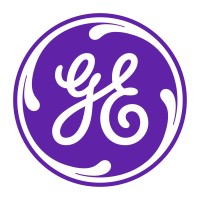
Memorial Hospital at Gulfport Company Cyber Security Posture
wearememorial.comMemorial Health System is a not-for-profit healthcare system jointly owned by the City of Gulfport and Harrison County. Memorial is one of the most comprehensive healthcare systems in the state, licensed for 303 beds, including a state-designated Level II Trauma Center, two outpatient surgery centers, satellite outpatient diagnostic and rehabilitation centers and more than 95 Memorial Physician Clinics. Memorial offers several of the region's most comprehensive clinical programs, such as emergency medicine; women and children services; orthopedic services; cardiovascular services; neurosciences and oncology. Additionally, Memorial provides medical specialties unique to the coast which include a Level III Neonatal ICU and Mississippi's first nationally certified Primary Stroke Center. Memorial offers 3D imaging and advanced surgical techniques, including the robotic assisted Specialty Surgery System. Memorial is accredited by The Joint Commission, the Commission on Cancer, the College of American Pathologists and the American College of Radiology.
MHG Company Details
memorial-hospital-at-gulfport
1637 employees
5997.0
62
Hospitals and Health Care
wearememorial.com
Scan still pending
MEM_2862276
In-progress
Between 800 and 900
This score is AI-generated and less favored by cyber insurers, who prefer the TPRM score.
 MHG Global Score
MHG Global Score.png)

Memorial Hospital at Gulfport Company Scoring based on AI Models
| Model Name | Date | Description | Current Score Difference | Score |
|---|---|---|---|---|
| AVERAGE-Industry | 03-12-2025 | This score represents the average cybersecurity rating of companies already scanned within the same industry. It provides a benchmark to compare an individual company's security posture against its industry peers. | N/A | Between 800 and 900 |
Memorial Hospital at Gulfport Company Cyber Security News & History
| Entity | Type | Severity | Impact | Seen | Url ID | Details | View |
|---|---|---|---|---|---|---|---|
| Memorial Hospital at Gulfport | Data Leak | 60 | 3 | 02/2019 | MEM144118223 | Link | |
Rankiteo Explanation : Attack with significant impact with internal employee data leaksDescription: Memorial Hospital at Gulfport announced that they have become a victim of a data breach that includes information of 30000 patients through an employee email account that a third party accessed. The hospital’s manager of marketing and communications said the email account contained information on about 30,000 patients, including names, birth dates, medical care, and health insurance information. Memorial Hospital offered free credit monitoring and identity protection services to a “limited number” of patients whose Social Security numbers, health insurance information, and other personal details were accessed. | |||||||
| Memorial Hospital at Gulfport | Ransomware | 100 | 4 | 10/2023 | MEM705124 | Link | |
Rankiteo Explanation : Attack with significant impact with customers data leaksDescription: ESO Solutions, a key software provider for healthcare and emergency services, was the victim of a ransomware attack. This cyberattack led to unauthorized data access and encryption of various company systems. The breach exposed a variety of personal information, depending on what patients had shared with their healthcare providers using ESO’s software. Compromised data includes: Full names Birth dates Phone numbers Patient account and medical record numbers Injury, diagnosis, treatment, and procedure details Social Security Numbers. It was confirmed that this breach affected data belonging to patients associated with ESO’s client hospitals and clinics in the U.S. To help mitigate risks, ESO is offering a year of identity monitoring services through Kroll to all notified individuals. | |||||||
Memorial Hospital at Gulfport Company Subsidiaries

Memorial Health System is a not-for-profit healthcare system jointly owned by the City of Gulfport and Harrison County. Memorial is one of the most comprehensive healthcare systems in the state, licensed for 303 beds, including a state-designated Level II Trauma Center, two outpatient surgery centers, satellite outpatient diagnostic and rehabilitation centers and more than 95 Memorial Physician Clinics. Memorial offers several of the region's most comprehensive clinical programs, such as emergency medicine; women and children services; orthopedic services; cardiovascular services; neurosciences and oncology. Additionally, Memorial provides medical specialties unique to the coast which include a Level III Neonatal ICU and Mississippi's first nationally certified Primary Stroke Center. Memorial offers 3D imaging and advanced surgical techniques, including the robotic assisted Specialty Surgery System. Memorial is accredited by The Joint Commission, the Commission on Cancer, the College of American Pathologists and the American College of Radiology.
Access Data Using Our API

Get company history
.png)
MHG Cyber Security News
Community Health Systems In Talks to Sell Another $450M+ of Assets
CEO Tim Hingtgen says his team's strategy to grow in key markets is working and 'investments are yielding the intended outcomes.'
Major Mississippi hospital system takes services offline after cyberattack
One of the largest hospital systems in Mississippi was forced to take several internal services offline after experiencing a cyberattack that ...
Healthcare software provider data breach impacts 2.7 million
ESO Solutions, a provider of software products for healthcare organizations and fire departments, disclosed that data belonging to 2.7 ...
The 2016 Security 500 Rankings
Which security programs are taking the lead? These 500 enterprises have been ranked through metrics to determine the forerunners in 18 ...
2015 Security 500 Rankings
Which security programs are taking the lead? These 500 enterprises have been ranked through metrics to determine the forerunners in 18 sectors.
The 2020 Security 500 Rankings
The 2020 Security 500 Rankings · Recommended Content · Security's Top Cybersecurity Leaders 2024 · The intersection of cybersecurity and ...
The 2019 Security 500 Rankings
The 2019 Security 500 Rankings · Recommended Content · Security's Top Cybersecurity Leaders 2024 · The intersection of cybersecurity and ...
Park Place
Once considered safe havens, health care institutions today are confronting steadily increasing rates of crime, including violent crime,” ...

MHG Similar Companies

Rush University Medical Center
Rush University Medical Center is an academic medical center that includes a 671-bed hospital serving adults and children, the 61-bed Johnston R. Bowman Health Center and Rush University. Rush University is home to one of the first medical colleges in the Midwest and one of the nation's top-ranked n

Houston Methodist
Houston Methodist is one of the nation’s leading health systems and academic medical centers. The health system consists of eight hospitals: Houston Methodist Hospital, its flagship academic hospital in the Texas Medical Center, seven community hospitals and one long-term acute care hospital through

Western Health and Social Care Trust
The Western Health and Social Care Trust delivers a comprehensive range of services to a population of over 298,200 people across the super council areas of Strabane and Derry City, Fermanagh and Omagh District and a portion of the Causeway Coast and Glens Borough Council area. We are guided by our

UnitedHealth Group
UnitedHealth Group is a health care and well-being company with a mission to help people live healthier lives and help make the health system work better for everyone. We are 340,000 colleagues in two distinct and complementary businesses working to help build a modern, high-performing health syste

GE HealthCare
Every day millions of people feel the impact of our intelligent devices, advanced analytics and artificial intelligence. As a leading global medical technology and digital solutions innovator, GE HealthCare enables clinicians to make faster, more informed decisions through intelligent devices, data

NYC Health + Hospitals
NYC Health + Hospitals is the nation’s largest public health care delivery system. We are an integrated network of hospitals, trauma centers, neighborhood health centers, nursing homes, and post-acute care centers. We are a home care agency and a health plan, MetroPlus. The health system provides es

Frequently Asked Questions (FAQ) on Cybersecurity Incidents
MHG CyberSecurity History Information
Total Incidents: According to Rankiteo, MHG has faced 2 incidents in the past.
Incident Types: The types of cybersecurity incidents that have occurred include ['Ransomware', 'Data Leak'].
Total Financial Loss: The total financial loss from these incidents is estimated to be {total_financial_loss}.
Cybersecurity Posture: The company's overall cybersecurity posture is described as Memorial Health System is a not-for-profit healthcare system jointly owned by the City of Gulfport and Harrison County. Memorial is one of the most comprehensive healthcare systems in the state, licensed for 303 beds, including a state-designated Level II Trauma Center, two outpatient surgery centers, satellite outpatient diagnostic and rehabilitation centers and more than 95 Memorial Physician Clinics. Memorial offers several of the region's most comprehensive clinical programs, such as emergency medicine; women and children services; orthopedic services; cardiovascular services; neurosciences and oncology. Additionally, Memorial provides medical specialties unique to the coast which include a Level III Neonatal ICU and Mississippi's first nationally certified Primary Stroke Center. Memorial offers 3D imaging and advanced surgical techniques, including the robotic assisted Specialty Surgery System. Memorial is accredited by The Joint Commission, the Commission on Cancer, the College of American Pathologists and the American College of Radiology..
Detection and Response: The company detects and responds to cybersecurity incidents through {description_of_detection_and_response_process}.
Incident Details
Incident 1: Ransomware Attack
Title: {Incident_Title}
Description: {Brief_description_of_the_incident}
Date Detected: {Detection_Date}
Date Publicly Disclosed: {Disclosure_Date}
Date Resolved: {Resolution_Date}
Type: {Type_of_Attack}
Attack Vector: {Attack_Vector}
Vulnerability Exploited: {Vulnerability}
Threat Actor: {Threat_Actor}
Motivation: {Motivation}
Incident 2: Data Breach
Title: {Incident_Title}
Description: {Brief_description_of_the_incident}
Date Detected: {Detection_Date}
Date Publicly Disclosed: {Disclosure_Date}
Date Resolved: {Resolution_Date}
Type: {Type_of_Attack}
Attack Vector: {Attack_Vector}
Vulnerability Exploited: {Vulnerability}
Threat Actor: {Threat_Actor}
Motivation: {Motivation}
Common Attack Types: As of now, the company has not encountered any reported incidents involving common cyberattacks.
Identification of Attack Vectors: The company identifies the attack vectors used in incidents through {description_of_identification_process}.
Impact of the Incidents
Incident 1: Ransomware Attack
Financial Loss: {Financial_Loss}
Data Compromised: {Data_Compromised}
Systems Affected: {Systems_Affected}
Downtime: {Downtime}
Operational Impact: {Operational_Impact}
Conversion Rate Impact: {Conversion_Rate_Impact}
Revenue Loss: {Revenue_Loss}
Customer Complaints: {Customer_Complaints}
Brand Reputation Impact: {Brand_Reputation_Impact}
Legal Liabilities: {Legal_Liabilities}
Identity Theft Risk: {Identity_Theft_Risk}
Payment Information Risk: {Payment_Information_Risk}
Incident 2: Data Breach
Financial Loss: {Financial_Loss}
Data Compromised: {Data_Compromised}
Systems Affected: {Systems_Affected}
Downtime: {Downtime}
Operational Impact: {Operational_Impact}
Conversion Rate Impact: {Conversion_Rate_Impact}
Revenue Loss: {Revenue_Loss}
Customer Complaints: {Customer_Complaints}
Brand Reputation Impact: {Brand_Reputation_Impact}
Legal Liabilities: {Legal_Liabilities}
Identity Theft Risk: {Identity_Theft_Risk}
Payment Information Risk: {Payment_Information_Risk}
Average Financial Loss: The average financial loss per incident is {average_financial_loss}.
Commonly Compromised Data Types: The types of data most commonly compromised in incidents are {list_of_commonly_compromised_data_types}.
Incident 1: Ransomware Attack
Entity Name: {Entity_Name}
Entity Type: {Entity_Type}
Industry: {Industry}
Location: {Location}
Size: {Size}
Customers Affected: {Customers_Affected}
Incident 2: Data Breach
Entity Name: {Entity_Name}
Entity Type: {Entity_Type}
Industry: {Industry}
Location: {Location}
Size: {Size}
Customers Affected: {Customers_Affected}
Response to the Incidents
Incident 1: Ransomware Attack
Incident Response Plan Activated: {Yes/No}
Third Party Assistance: {Yes/No}
Law Enforcement Notified: {Yes/No}
Containment Measures: {Containment_Measures}
Remediation Measures: {Remediation_Measures}
Recovery Measures: {Recovery_Measures}
Communication Strategy: {Communication_Strategy}
Adaptive Behavioral WAF: {Adaptive_Behavioral_WAF}
On-Demand Scrubbing Services: {On_Demand_Scrubbing_Services}
Network Segmentation: {Network_Segmentation}
Enhanced Monitoring: {Enhanced_Monitoring}
Incident 2: Data Breach
Incident Response Plan Activated: {Yes/No}
Third Party Assistance: {Yes/No}
Law Enforcement Notified: {Yes/No}
Containment Measures: {Containment_Measures}
Remediation Measures: {Remediation_Measures}
Recovery Measures: {Recovery_Measures}
Communication Strategy: {Communication_Strategy}
Adaptive Behavioral WAF: {Adaptive_Behavioral_WAF}
On-Demand Scrubbing Services: {On_Demand_Scrubbing_Services}
Network Segmentation: {Network_Segmentation}
Enhanced Monitoring: {Enhanced_Monitoring}
Incident Response Plan: The company's incident response plan is described as {description_of_incident_response_plan}.
Third-Party Assistance: The company involves third-party assistance in incident response through {description_of_third_party_involvement}.
Data Breach Information
Incident 2: Data Breach
Type of Data Compromised: {Type_of_Data}
Number of Records Exposed: {Number_of_Records}
Sensitivity of Data: {Sensitivity_of_Data}
Data Exfiltration: {Yes/No}
Data Encryption: {Yes/No}
File Types Exposed: {File_Types}
Personally Identifiable Information: {Yes/No}
Prevention of Data Exfiltration: The company takes the following measures to prevent data exfiltration: {description_of_prevention_measures}.
Handling of PII Incidents: The company handles incidents involving personally identifiable information (PII) through {description_of_handling_process}.
Ransomware Information
Incident 1: Ransomware Attack
Ransom Demanded: {Ransom_Amount}
Ransom Paid: {Ransom_Paid}
Ransomware Strain: {Ransomware_Strain}
Data Encryption: {Yes/No}
Data Exfiltration: {Yes/No}
Ransom Payment Policy: The company's policy on paying ransoms in ransomware incidents is described as {description_of_ransom_payment_policy}.
Data Recovery from Ransomware: The company recovers data encrypted by ransomware through {description_of_data_recovery_process}.
Regulatory Compliance
Incident 1: Ransomware Attack
Regulations Violated: {Regulations_Violated}
Fines Imposed: {Fines_Imposed}
Legal Actions: {Legal_Actions}
Regulatory Notifications: {Regulatory_Notifications}
Incident 2: Data Breach
Regulations Violated: {Regulations_Violated}
Fines Imposed: {Fines_Imposed}
Legal Actions: {Legal_Actions}
Regulatory Notifications: {Regulatory_Notifications}
Regulatory Frameworks: The company complies with the following regulatory frameworks regarding cybersecurity: {list_of_regulatory_frameworks}.
Ensuring Regulatory Compliance: The company ensures compliance with regulatory requirements through {description_of_compliance_measures}.
Lessons Learned and Recommendations
Incident 1: Ransomware Attack
Lessons Learned: {Lessons_Learned}
Incident 2: Data Breach
Lessons Learned: {Lessons_Learned}
Incident 1: Ransomware Attack
Recommendations: {Recommendations}
Incident 2: Data Breach
Recommendations: {Recommendations}
Key Lessons Learned: The key lessons learned from past incidents are {list_of_key_lessons_learned}.
Implemented Recommendations: The company has implemented the following recommendations to improve cybersecurity: {list_of_implemented_recommendations}.
References
Additional Resources: Stakeholders can find additional resources on cybersecurity best practices at {list_of_additional_resources}.
Investigation Status
Incident 1: Ransomware Attack
Investigation Status: {Investigation_Status}
Incident 2: Data Breach
Investigation Status: {Investigation_Status}
Communication of Investigation Status: The company communicates the status of incident investigations to stakeholders through {description_of_communication_process}.
Stakeholder and Customer Advisories
Incident 1: Ransomware Attack
Stakeholder Advisories: {Stakeholder_Advisories}
Customer Advisories: {Customer_Advisories}
Incident 2: Data Breach
Stakeholder Advisories: {Stakeholder_Advisories}
Customer Advisories: {Customer_Advisories}
Advisories Provided: The company provides the following advisories to stakeholders and customers following an incident: {description_of_advisories_provided}.
Initial Access Broker
Incident 1: Ransomware Attack
Entry Point: {Entry_Point}
Reconnaissance Period: {Reconnaissance_Period}
Backdoors Established: {Backdoors_Established}
High Value Targets: {High_Value_Targets}
Data Sold on Dark Web: {Yes/No}
Incident 2: Data Breach
Entry Point: {Entry_Point}
Reconnaissance Period: {Reconnaissance_Period}
Backdoors Established: {Backdoors_Established}
High Value Targets: {High_Value_Targets}
Data Sold on Dark Web: {Yes/No}
Monitoring and Mitigation of Initial Access Brokers: The company monitors and mitigates the activities of initial access brokers through {description_of_monitoring_and_mitigation_measures}.
Post-Incident Analysis
Incident 1: Ransomware Attack
Root Causes: {Root_Causes}
Corrective Actions: {Corrective_Actions}
Incident 2: Data Breach
Root Causes: {Root_Causes}
Corrective Actions: {Corrective_Actions}
Post-Incident Analysis Process: The company's process for conducting post-incident analysis is described as {description_of_post_incident_analysis_process}.
Corrective Actions Taken: The company has taken the following corrective actions based on post-incident analysis: {list_of_corrective_actions_taken}.
Additional Questions
General Information
Ransom Payment History: The company has {paid/not_paid} ransoms in the past.
Last Ransom Demanded: The amount of the last ransom demanded was {last_ransom_amount}.
Last Attacking Group: The attacking group in the last incident was {last_attacking_group}.
Incident Details
Most Recent Incident Detected: The most recent incident detected was on {most_recent_incident_detected_date}.
Most Recent Incident Publicly Disclosed: The most recent incident publicly disclosed was on {most_recent_incident_publicly_disclosed_date}.
Most Recent Incident Resolved: The most recent incident resolved was on {most_recent_incident_resolved_date}.
Impact of the Incidents
Highest Financial Loss: The highest financial loss from an incident was {highest_financial_loss}.
Most Significant Data Compromised: The most significant data compromised in an incident was {most_significant_data_compromised}.
Most Significant System Affected: The most significant system affected in an incident was {most_significant_system_affected}.
Response to the Incidents
Third-Party Assistance in Most Recent Incident: The third-party assistance involved in the most recent incident was {third_party_assistance_in_most_recent_incident}.
Containment Measures in Most Recent Incident: The containment measures taken in the most recent incident were {containment_measures_in_most_recent_incident}.
Data Breach Information
Most Sensitive Data Compromised: The most sensitive data compromised in a breach was {most_sensitive_data_compromised}.
Number of Records Exposed: The number of records exposed in the most significant breach was {number_of_records_exposed}.
Ransomware Information
Highest Ransom Demanded: The highest ransom demanded in a ransomware incident was {highest_ransom_demanded}.
Highest Ransom Paid: The highest ransom paid in a ransomware incident was {highest_ransom_paid}.
Regulatory Compliance
Highest Fine Imposed: The highest fine imposed for a regulatory violation was {highest_fine_imposed}.
Most Significant Legal Action: The most significant legal action taken for a regulatory violation was {most_significant_legal_action}.
Lessons Learned and Recommendations
Most Significant Lesson Learned: The most significant lesson learned from past incidents was {most_significant_lesson_learned}.
Most Significant Recommendation Implemented: The most significant recommendation implemented to improve cybersecurity was {most_significant_recommendation_implemented}.
References
Most Recent Source: The most recent source of information about an incident is {most_recent_source}.
Most Recent URL for Additional Resources: The most recent URL for additional resources on cybersecurity best practices is {most_recent_url}.
Investigation Status
Current Status of Most Recent Investigation: The current status of the most recent investigation is {current_status_of_most_recent_investigation}.
Stakeholder and Customer Advisories
Most Recent Stakeholder Advisory: The most recent stakeholder advisory issued was {most_recent_stakeholder_advisory}.
Most Recent Customer Advisory: The most recent customer advisory issued was {most_recent_customer_advisory}.
Initial Access Broker
Most Recent Entry Point: The most recent entry point used by an initial access broker was {most_recent_entry_point}.
Most Recent Reconnaissance Period: The most recent reconnaissance period for an incident was {most_recent_reconnaissance_period}.
Post-Incident Analysis
Most Significant Root Cause: The most significant root cause identified in post-incident analysis was {most_significant_root_cause}.
Most Significant Corrective Action: The most significant corrective action taken based on post-incident analysis was {most_significant_corrective_action}.
What Do We Measure?
















Every week, Rankiteo analyzes billions of signals to give organizations a sharper, faster view of emerging risks. With deeper, more actionable intelligence at their fingertips, security teams can outpace threat actors, respond instantly to Zero-Day attacks, and dramatically shrink their risk exposure window.
These are some of the factors we use to calculate the overall score:
Identify exposed access points, detect misconfigured SSL certificates, and uncover vulnerabilities across the network infrastructure.
Gain visibility into the software components used within an organization to detect vulnerabilities, manage risk, and ensure supply chain security.
Monitor and manage all IT assets and their configurations to ensure accurate, real-time visibility across the company's technology environment.
Leverage real-time insights on active threats, malware campaigns, and emerging vulnerabilities to proactively defend against evolving cyberattacks.




